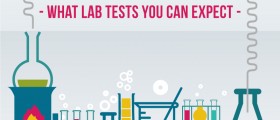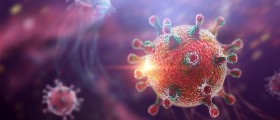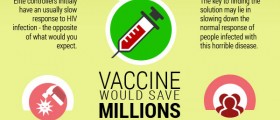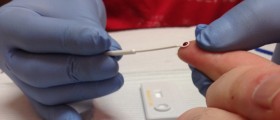HIV, which stands for Human Immunodeficiency Virus, is the virus that causes AIDS. Everyone knows about this scary disease, and most know that it gets progressively worse and can eventually be fatal. What should you do if you think you could possibly have HIV? What are the earliest symptoms?

Symptoms
HIV doesn't immediately cause AIDS, even in people who don't know they are positive, and who therefore don't seek treatment. It's entirely possible to be HIV positive for several years without having any symptoms at all. Once symptoms do show up, they are very likely to be similar to other common diseases like the flu, common cold, or even vague abdominal symptoms that could also easily be caused by STDs like chlamydia. Fever, extreme tiredness, swollen lymph nodes and a headache are common first symptoms of HIV.
Later symptoms of HIV could include more serious warning signs like pneumonia, recurring fever, sores on the body, and extreme and constant fatigue. But people with an advanced HIV infection could also have a dry cough, diarrhea, and even depression and other psychological symptoms. But HIV does not always follow the same pattern, and once a patient develops AIDS, there will be opportunistic infections that reflect the weak immune system. Symptoms aren't enough to diagnose HIV, though, and all of the symptoms we mentioned could also occur in people with other illnesses, or who are otherwise healthy.
Testing and diagnosis
HIV testing is recommended for everyone who could be at risk, which is almost anyone who has unprotected sex (you never do know if your partner is faithful!), and especially for people who regularly change sexual partners. There will soon be HIV home tests available, but if you head to a doctor, you may expect something like this:
The Elisa test detects antibodies to the HIV virus in the patient's blood stream. If there aren't any, the patient does not have a HIV infection. If there are some, there are further stages of testing. The Western Blot test looks for proteins associated with HIV. The PCR test examines the DNA and genetics of someone with positive Elisa and Western Blot tests, again to confirm the presence of changes that indicate HIV.















Your thoughts on this
Loading...